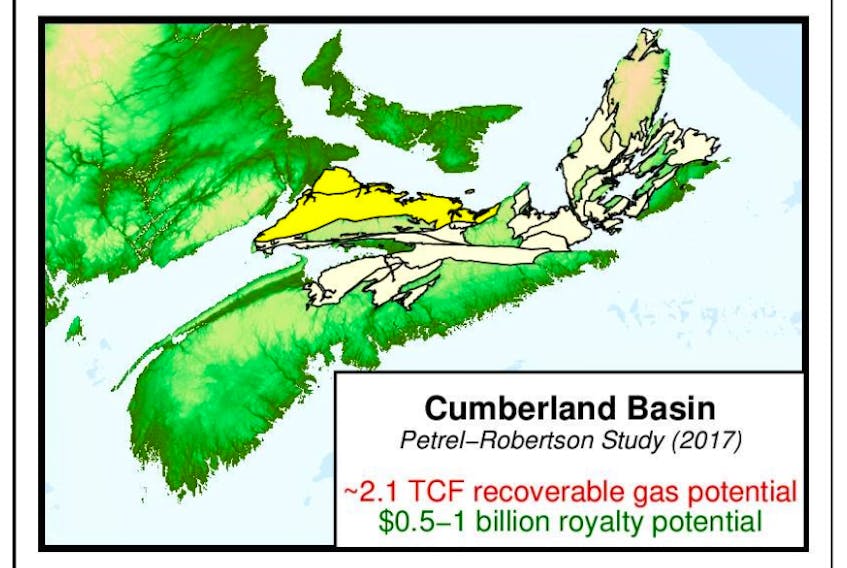AMHERST – Jason Blanch will never be convinced that hydraulic fracturing of any kind will be beneficial to the environment of Cumberland County or Nova Scotia.
The Amherst environmentalist and town councilor is pleased the Nova Scotia government is not about to change its stance on fracking, despite growing pressure from the business sector.
“It’s not worth risking our environment and our clean water for promises of economic development,” said Blanch, who said he’s not speaking as a representative of the Town of Amherst. “If you look at what has happened in other communities, often their promises of economic development often fall short.”
Last week, an Energy Department analysis suggested the province’s onshore natural gas reserves are worth between US$20 billion and US$60 billion with a large portion of it located under Cumberland County as well as in the Windsor area.
Premier Stephen McNeil said there are no plans to change the government’s position because it remains concerned about the impacts fracking could have on Nova Scotia’s water supply.
Still, the CEO of the Maritimes Energy Association, Ray Ritcey, hopes this onshore petroleum atlas may spur the Nova Scotia government to rethink its stance.
It passes legislation in 2014 banning the use of fracking, but it was never proclaimed.
Hydraulic fracturing, or fracking, is a process in which water and chemicals are pumped underground in large quantities to fracture rock and release the gas.
“We know we have a ban in place. We believe the government is going to have to take another look at removing the ban and setting up some regulations that are encouraging to developers to prospect,” Ritcey said. “That’s the challenge because there are lots of folks out there are against the development of our resources and the use of fracking to harvest those resources. Most of the public doesn't understand this is a proven technology and is used extensively in western Canada and the eastern United States.”
Ritcey said accessing the gas – up to seven-trillion cubic feet (three times the Sable Island reserve) – would require hydraulic fracturing in the case of shale gas.
Doing so, he added, would put Nova Scotians to work and entice those who left to work in the western provinces to come home with the expertise they learned there.
He admitted there’s always risk, but it can be managed effectively through regulation and legislation.
“This is an opportunity to look at it more closely given the economic situation we now find ourselves in,” Ritcey said, adding the industry wants to take a look at the resources to see if it can be accessed and whether it’s commercially viable to do so.
At present, he said, most of the natural gas used by consumers in Nova Scotia is coming from the offshore, but that supply is quickly running out and it would be nice to have another source of natural gas instead of having to ship it in through the pipeline from western Canada and the eastern United States.
Cumberland North MLA Elizabeth Smith-McCrossin said she would support taking a look at lifting the ban.
“We are sitting on a gold mine,” she said. “I love Cumberland County and want to see people brought out of poverty, to be able to buy homes to buy their groceries and have a good life. I believe we need to explore the possibilities.”
While she understands the environmental concerns, she feels it’s time “to be brave and learn from other areas” about the technology that can be used to extract resources safely and responsibly.
“It has been proven that it can be done,” she said. “Our children and grandchildren deserve this.”
Blanch said those in the oil and gas industries are making one last stab at what they see as a profitable enterprise in the face of the growing use of greener energy such as solar, tidal and wind power.
He also believes it would be counter to what’s taking place in Cumberland County with its efforts to become a centre of excellence in green energy.
“They just can’t work together,” Blanch said. “We really don’t need it and the threat is so great. No matter what jobs we can’t from it and what short-benefit there is to our communities we can’t continue burning oil and natural gas any longer. It’s so important for our children and our children’s children to take a strong stance now to protect a resource we have an abundance of now, and that’s our water.”
Twitter: @ADNdarrell









